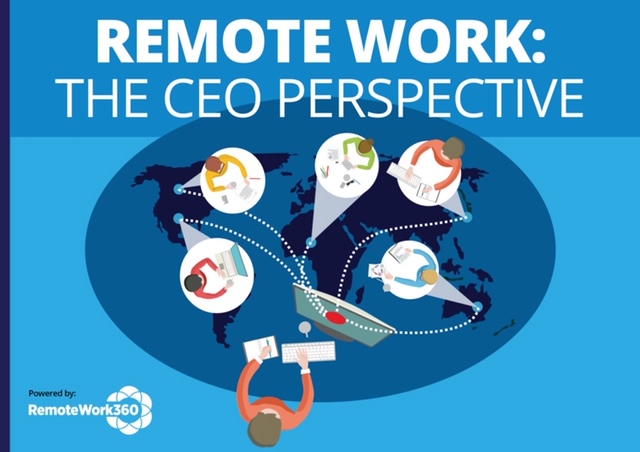Marketing Automation - A Guide
- Home
- Supplier Directory
- Attendance & Monitoring
- Collaboration & Communication
- Cloud Telephony & VOIP
- Collaboration & Secure File Sharing
- Communication Software
- Creative Tools
- Culture Building
- Interactive presentations/screen sharing
- Messaging Tools
- Online Training
- Productivity
- Project Management
- Shared workspaces
- Time Tracking
- Video Conferencing
- Virtual Water Cooler
- Web Developer tools
- Finance/Accounting
- HR/Talent Management
- IT
- Managing Remote Teams
- Productivity
- Project Management
- Remote Workplace Wellness
- Sales & Marketing
- eNewsletter
- Events / Education
- About Us
- News
Sales & Marketing
ByRemoteWork360
What is Marketing Automation and How Can it Help You?
Marketing automation is a software technology that can manage marketing operations and multifunctional campaigns, across multiple mediums. It also facilitates the automation of repetitive tasks using a set of tools designed to make the sales and marketing process both efficient and quick. Marketing automation combines marketing, sales, and customer service to develop a seamless customer experience across a company’s brand.
Functionality
Marketing automation allows businesses to target customers using automated messages across several channels such as email, internet, social media, and text. It enables messages to be sent automatically, according to sets of instructions known as workflows. Workflows may either be in-built templates, custom-built, or modified during the campaign to gain better results. Studies show that 75% of email revenue in a company is generated solely from personalized campaigns.
Marketing automation lets the user create relevant content and messaging on a large scale across many channels. For instance, it is possible to generate digital ads that appear for the right customer at the right time or recommend preferred products on the website for each individual user automatically. This is done by collecting customer data through various interactions including emails, website visits, app usage, and social media.
Benefits Of Marketing Automation
Marketing automation is used by the marketing and sales departments to automate online marketing campaigns and sales activities to streamline the process and enhance revenue. The most common advantages of using marketing automation are:
- Marketing campaigns can be created easily using simplified user interfaces and drag-and-drop functionality that is similar to applications that are used in daily life.
- Every aspect of digital marketing can be accessed from a single software including basic email sends, complex campaign management, and data analysis.
- The effective use of automation to handle repetitive tasks allows the company to save resources and reduce the possibility of human error.
- Automation tools help to identify the audience, design the perfect content, and automatically prompt actions based on given schedules and specific customer behavior.
- It enables a business to build better customer relationships and improves customer retention.
Business Development
Studies show that about 63% of companies that outgrow their competitors are utilizing automation. Businesses use marketing automation to encourage potential customers to purchase their products. Automated business development uses a combination of email, social media, search engine optimization (SEO), and content marketing.
It is necessary to collaborate within the company and gain inputs since marketing automation strategies usually involves several teams in the organization. It is also important to create and design relevant and engaging messaging to reach the customer through all the phases of her/his lifecycle. Analytics should be utilized to monitor the working of each marketing strategy to make the proper changes that will help a business to grow effectively.
Marketing Automation Usage
In US, the marketing automation software industry is growing at a rate of more than 20 percent annually and as of 2019 it has grown into a $6.1 billion market. Automation tools are already widely accepted by the vast majority of brands and about 55 percent of B2B companies are adopting automation technology. Statistics show that about 75 percent of all companies already use at least one kind of marketing automation tool.
Reference
- https://moosend.com/blog/10-marketing-automation-statistics-need-know
- https://www.weidert.com/blog/what-is-marketing-automation
- https://www.marketo.com/marketing-automation/
- https://www.hubspot.com/marketing-automation-information
- https://www.salesforce.com/in/products/marketing-cloud/what-is-marketing-automation/
Related Posts
An estimated 86.3% of San Francisco employees are working from home, the highest rate among 10 major ...
May 11, 2021
In the third instalment of her blog - you can catch the first, on maintaining creativity here and ...
January 22, 2021
The different “kinds” of remote: finding the right fit your business Covid-19 has turned our world ...
January 14, 2021
RemoteWork360
RemoteWork360.com is powered by Chief Executive Group, which exists to improve the performance of business leaders, build communities and strengthen society.
Latest Insights
COPYRIGHT ©2020 REMOTEWORK360. ALL RIGHTS RESERVED.



